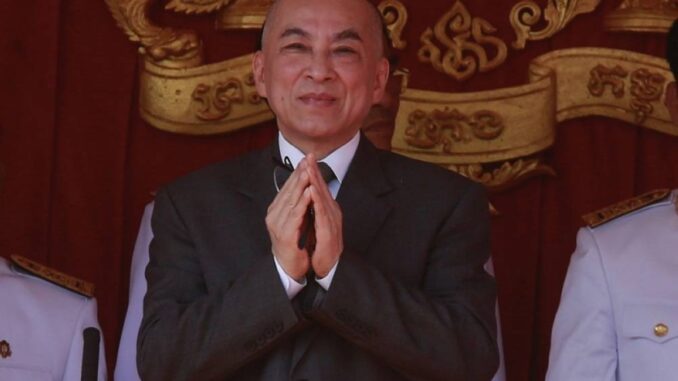
(UPDATE) CAMBODIA has pardoned and sent home 13 Filipino women who were jailed over a scheme to become surrogate mothers, an outlawed practice in that country, the Department of Foreign Affairs (DFA) said on Sunday.
They were among 24 foreign women detained by Cambodian police in September, and convicted and sentenced to four years in prison on Dec. 2 for attempted cross-border human trafficking.
The women “and three of their babies” were sent home to Manila early Sunday and taken to a government shelter for trafficking victims, the Department of Social Welfare and Development (DSWD) said in a statement.
Ten of the repatriated women are still pregnant, Assistant Secretary Irene Dumlao of the DSWD said.
“All 13 [women] departed Phnom Penh and arrived safely in Manila following the grant of royal pardon by His Majesty Preah Bat Samdech Preah Boromneath Norodom Sihamoni,” the DFA said in a separate statement.
“Upon the request of the Philippine Embassy and with the endorsement of the Royal Government of Cambodia, the royal decree pardoning all 13 Filipinos paved the way for their release and immediate repatriation,” the DFA said.
The Philippine government thanked Cambodian Prime Minister Hun Manet “for the humanitarian treatment extended to the Filipino mothers throughout the investigative and judicial process.”
“Their safe homecoming is a testament to the long-standing friendly relations between the Philippines and Cambodia, and the firm commitment of both governments to combat human trafficking and other transnational crimes,” the DFA said.
The DFA and the embassy coordinated with the Inter-Agency Council Against Trafficking in sending home the 13 Filipino women.
The Cambodian court ruling had said it had strong evidence showing that the 13 had “the intention… to have babies to sell to a third person in exchange for money, which is an act of human trafficking.”
The court did not give details on what would happen to the babies.
The DFA warned “surrogacy is banned in Cambodia and any violation thereof is punishable under Cambodian laws.”
But it also maintained that the Filipinos involved in a surrogacy scheme in Cambodia were trafficking victims.
The DSWD said “there is no law prohibiting or allowing surrogacy in the Philippines, providing a legal gray area prone to abuse.”
In 2016, Cambodia issued a snap ban on commercial surrogacy after neighboring Thailand pulled the plug on the trade the previous year — putting an abrupt end to a thriving industry for hopeful parents, many from Australia and the United States.
But demand for commercial surrogacy remains high after China eased its one-child policy and agencies in Cambodia continue to offer the service.
Sources in the kingdom have previously told the Agence France-Presse (AFP) that couples — mostly from China — are willing to pay between $40,000 and $100,000 to surrogacy agents to find a Cambodian woman who can carry their child.





Be the first to comment